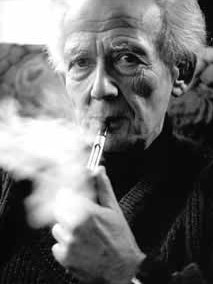
January 23, 2017, by admin
This is not an obituary
Zygmunt Bauman, Emeritus Professor of Sociology at The University of Leeds, one of the greatest sociologist of our times, died on the 9th of January 2017, aged 91. I did not know Bauman, and it would be inappropriate for me to write his obituary. Others have already done so, and these can be accessed via links at the end of this post. However, I would like to take the time to offer some reflections on a person through whom I, like many sociologists, was introduced to the discipline, and whose work I continue to read on a regular basis.
In 2012 I attended a lecture given by Professor Bauman at Leeds Metropolitan University, titled: ‘Living in Times of Interregnum’. Interregnum (translation: ‘between kingdoms’ or ‘between rulers’) is a concept with which he became concerned during the latter stages of life, through which is encapsulated the social condition we are in: ‘one where old ways of doing things don’t work, but new ways of doing things effectively have not yet been invented’ (14.42). The nation-state once married power (the ability to have things done) and politics (the ability to decide which things ought to be done). Now power has ascended politics: the economy has globalised, and operates beyond the reach of any individual government.
Addressing the audience, Bauman stated: ‘your life will be spent in attempt to marry again power and politics, which are living now in the state of separation and divorce’ (19.23). I felt uneasy listening. The task handed to us – not only the audience, but all of us – is a particularly onerous one, yes, but this is not why I felt uneasy. I felt uneasy because he stated that the problem is for our lifetime, but not his: ‘because mine is ending’ (19.15). Just over four years later, this is perhaps my most enduring memory of the lecture. I am not sure why I remember it so well, and the best explanation I can proffer is that it is unusual to hear someone talk so frankly in public about their own life coming to an end.
In 1992, Bauman wrote that death is ‘an unimaginable other’. We have an inability to really imagine social life as it continues after our own death: we have no perspective but our own, and therefore no perspective from which to view a world where we do not exist. We are always necessarily present in our understanding of the world in which by definition we should not be. The way in which Bauman conceptualised the world-as-interregnum is however in many respects still the same social world after his death. We may not be able to imagine how interactions at the level of the everyday in which we would normally partake are conducted in our permanent absence, but we can imagine how life might continue tomorrow from the point of today, even if by tomorrow we are gone. Ask yourself: how is social life different, to say, life in the 1950s? That you can provide an answer along the lines of ‘well, in the 1950s things were like that, and now they are like this’ – whatever this and that may be – implies that ‘now’ is not a non-moment between past and future. The present is not fleeting once understood sociologically, even if that present is, as Bauman would say, ‘liquid’.
Retrotopia, now forever Bauman’s final text, released later this month, contributes to our understanding of the nostalgia currently driving politics: the construction of a public imagination of a (quasi) fictional past presented as a means to the re-marriage of power and politics for the future (Make America Great Again! We want our country back!). This could be understood as an exit from the interregnum offered by the strong re-assertion of state sovereignty (we’re going to build a wall; this is our independence day), the sovereignty of which, in being in discordance with economy in the first instance, produced the interregnum itself. The epilogue to Retropia is however titled: Looking Forward, For a Change. Within Bauman’s work, as Matt Dawson points out, there is always hope. With this in mind, this is a reminder of the task Bauman set for all of us, in (amongst other places) a lecture hall in Leeds in 2012.
Zygmunt Bauman (19/11/1925 – 09/01/2017)
For some of the obituaries of Zygmunt Bauman please see:
https://www.theguardian.com/education/2017/jan/15/zygmunt-bauman-obituary
http://baumaninstitute.leeds.ac.uk/2017/01/10/a-tribute-to-professor-zygmunt-bauman-1925-2017/
http://discoversociety.org/2017/01/10/zygmunt-bauman-1925-2017/
https://library.leeds.ac.uk/special-collections/collection/1530
http://www.nytimes.com/aponline/2017/01/09/world/europe/ap-eu-poland-obit-bauman.html
http://www.glasgowsociology.com/zygmunt-bauman-1925-2017/
http://www.manchesteruniversitypress.co.uk/remembering-bauman/
Ed Wright is a doctoral researcher in sociology at The University of Nottingham. You can contact Ed on twitter or via email: edward.wright@nottingham.ac.uk.
Image courtesy of Amber Case.
No comments yet, fill out a comment to be the first

Leave a Reply